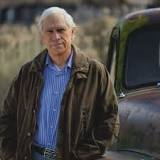What makes a good book series?
3/7/2016 What makes a good book series? And why do readers love them?
Check the best seller list on any given week and you’re bound to find lots of familiar authors writing about familiar characters. The heroes of mysteries and thrillers often lead the pack (Jack Reacher, Alex Cross, Lucas Davenport), but series characters also dominate in fantasy and even appear in literary fiction (John Updike’s brilliant Rabbit series). That’s no surprise. Picking a book to read can be difficult and sometimes it’s easier (and safer) to spend a few hours with a character you know in the hands of an author you trust.
In the last year, I’ve been reading—and studying—a lot of these series, trying to separate the good from the mediocre, the fresh from the tired, the exciting from the ho-hum. Apart from the obvious (good character, good plot, good writing), it’s not always easy to figure out what separates the strong from the weak. James Patterson lost his allure for me long ago because his formula is always the same and his plots are full of absurdities. Yet I’ve probably read a dozen of Jonathan Sandford’s Lucas Davenport novels and still find myself looking forward to the next.
I divide the series character into three categories: The Peter Pans who never age or change (Lee Child’s Jack Reacher), those that grow and change in such significant ways that you almost have to read the novels in sequence (Louise Penny’s Inspector Gamache or J.K. Rawlings’s Harry Potter), and those that age, marry, divorce, or change jobs but still remain true to themselves in what matters (Sandford’s Davenport or Michael Connolly’s Harry Bosch). Any of these can and do work well for authors and readers if the writing and characters are strong enough. It’s only when the writer gets lazy and takes his or her readers for granted.
I’ve had a good reason for studying series characters: I’m closing in on the second book in what could be a series of my own. When I wrote my first novel, Hawke’s Point, I was sure it was a one-off. I couldn’t even imagine a series. After all, my protagonist, Jonas Hawke is 73 and long past his prime. How many encores can there be?
But as I talked with readers about the novel, I realized that Jonas and his unlikely friend (a middle-aged, part-time call girl named Mary Louise) had struck a chord with readers who wanted to know more about them. Equally important, I realized there was more that I wanted to know.
Plus my publisher thought it would be a good idea.
So I decided to give it a try. At first I felt like a cheat. I knew these characters – how they thought, how they acted, what they cared about — and it was easy and comfortable to write about them. But I soon realized that I had barely scratched the surface. It was like spending time with good friends. You know them, perhaps very well, but you can always know them better, and if you put them in circumstances they’d never encountered before, you get to learn all sorts of unexpected things.
When I started, I didn’t know where Jonas and Mary Louise would fit in the three categories I’ve described, but I soon felt them changing. The changes are sometimes subtle, sometimes significant. No one will have trouble recognizing Jonas, though outside events have put him in new circumstances that test his mettle, his values, and how he wants to leave his mark on the world. Mary Louise, being younger and facing a different kind of life change, is making a bigger transformation, and whereas Jonas knows himself pretty well at this stage in his life, Mary Louise is still learning a good deal.
In the end, I’m cautiously optimistic that it will work—and there may even be a third (though certainly final) novel in the Hawke “series.” But it’ll be awhile before we know, and readers will be the ones to decide.
Mark Willen
Mark Willen’s novels, Hawke’s Point, Hawke’s Return, and Hawke’s Discovery, were released by Pen-L Publishing. His short stories have appeared in Corner Club Press, The Rusty Nail. and The Boiler Review. Mark is currently working on his second novel, a thriller set in a fictional town in central Maryland. Mark also writes a blog on practical, everyday ethics, Talking Ethics.com.
- Web |
- More Posts(48)
